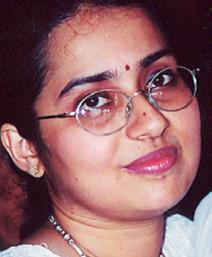
1 minute read
Ambitious talkfest opens up virgin terrain
from 2012-09 Sydney (2)
by Indian Link
Inaugural writers’ conference seeks dialogue to share the wealth of Indian and Australian regional literary culture
BY USHA RAMANUJAM ARVIND

Australia’s rollercoaster relationship with India is all set to ride a new high after a successful writers’ forum, the first of its kind, opened fresh new pathways between the two nations, tapping into each other’s intellectual and cultural identities and thereby forging what could be long lasting relationships in hitherto unexplored terrains.
Leapfrogging over linguistic and political barriers, the high profile Australia India Literatures International Forum (AILIF) organised by University of Western Sydney’s (UWS) Writing Society and Research Centre (WSRC) brought together a selection of creative talents from both countries for a meeting of minds. Two leading publishers (R Sivapriya of Penguin India and Mita Kapur of Siyahi) and ten acclaimed writers representing many regional dialects flew down from the subcontinent for the largest literary exchange of its kind experienced so far in Australia.
The Indian delegation was led by veteran theatre personality and playwright Girish Karnad, and included Dalit writers Gogu Shyamala and Sharan Kumar Limbale; Mamang Dai and Kinpham Singh Nongkynrih, both writers from the north east; social historian and women studies researcher CS Lakshmi; Urdu storyteller Mahmood Farooqui; Hindi novelist Uday Prakash; Malayali writer NS Madhavan; and Gujarati poet Prabhodh Parikh.
While Indian writing in English has a huge market worldwide commanding an impressive global readership, the literary offerings in myriad regional Indian languages remains virgin territory. Likewise, the rich vibrancy of Australian indigenous writing is a niche area with immense potential. As well, multicultural writers of modern Australia have countless tales to tell, imbibing many literary and cultural traditions that dissolve geographic boundaries. The forum sought to link these diverse traditions of storytelling through one common platform.









